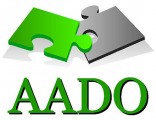
Conference on Diverse Philanthropy and Leadership
This conference is sold out.
Please save the date for next year when the Conference on Diverse Philanthropy and Leadership will be in Atlanta, GA from April 15-17, 2020.
The Conference on Diverse Philanthropy and Leadership is co-presented by the African American Development Officers Network (AADO) and the Council for Advancement And Support Of Education (CASE) in partnership with the Mays Family Institute on Diverse Philanthropy at the Lilly Family School of Philanthropy.
This conference concentrates on emerging philanthropic markets (i.e., ethnic, LGBT, young alumni) in development, while exploring minority wealth, philanthropic behaviors, and diverse engagement strategies. The program also features sessions on enhancing management and leadership skills for development professionals of diverse backgrounds.
Benefits of Attending
- Understand the impact of diverse philanthropy.
- Create strategies to engage community members and leaders as fundraising partners.
- Enhance your leadership skills.
- Gain direct skills for managing relationships at all levels.
- Learn best practices for fundraising from diverse constituencies.
Who Should Attend
- Advancement professionals—at all levels—who want to effectively increase their contributions and resources to their organization
- Diverse and majority advancement professionals serving, managing, and soliciting diverse constituencies
- Senior management professionals looking to develop and enhance strategies to attract and retain diverse employees, while creating an open culture.
Program
Preconference Workshop
Keynote Speakers
Anna Barber is president and principal consultant for Barber & Associates, a boutique fundraising consulting firm focused on helping nonprofit organizations achieve their full fundraising potential.
Tyrone McKinley Freeman is assistant professor of philanthropic studies and the director of undergraduate programs at the Indiana University Lilly Family School of Philanthropy.
Yolanda F. Johnson has had nearly two decades as a successful fundraising professional and nonprofit development executive. She is currently president of YFJ Consulting, LLC, a fundraising consultancy focused on major gifts, campaigns, individual giving, board development, and special events.
Rose Mays is professor emeritus at the Indiana University School of Nursing at IUPUI. From 1973 until her recent retirement, she specialized in teaching pediatric nursing. For eight years, she served as the school's associate dean for community and international affairs and implemented a program of research and community service focused on health promotion and disease prevention for vulnerable adolescents.
Juan McGruder is senior vice president and chief development officer at Junior Achievement of Georgia. Prior, he was the director of development for Ivan Allen College of Liberal Arts at Georgia Tech. He also served as associate director of development in the College of Computing and later as the first director of development for the School of Computer Science. He is former AVP for institutional advancement at Morehouse School of Medicine.
Charlie Nelms is a transformational servant-leader, a motivational speaker, and a consultant with expertise in higher education. He has more than 40 years of experience and leadership in student access, retention and graduation, institutional effectiveness, and strategic planning.
David Thornton enters his eighth season with the Indianapolis Colts as the club's director of player engagement. Thornton's primary charge is the personal and professional growth of each player during and beyond their NFL experience. He tailors specific programs involving professional development, career exposure, financial education, and higher learning for members of the Colts.
Roderick Wheeler is a philanthropy professional, advocate for social change, researcher and innovator with expertise in criminal justice, education, youth and workforce development, philanthropy, and investing in social enterprises.
Hotel & Travel
50 W Washington St
Indianapolis, IN 46204
The CASE room block is full.
There are still rooms available, but they are not guaranteed at the CASE group rate of $209.
Alternate Hotels
See below for a list of nearby hotels if you prefer to stay somewhere other than the conference hotel.
Embassy Suites by Hilton – Downtown Indianapolis
110 W Washington St
1-minute walk to conference hotel
Hampton Inn Indianapolis
105 S Meridian St
3-minute walk to conference hotel
Hilton Indianapolis
120 W. Market St
3-minute walk to conference hotel
Sheraton Indianapolis City Centre Hotel
31 W. Ohio St
6-minute walk to conference hotel

Co-Sponsors


This conference is co-presented with the African American Development Officers Network (AADO) in partnership with the Mays Family Institute on Diverse Philanthropy.